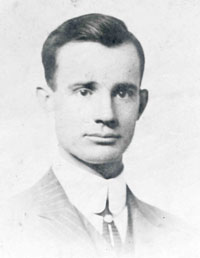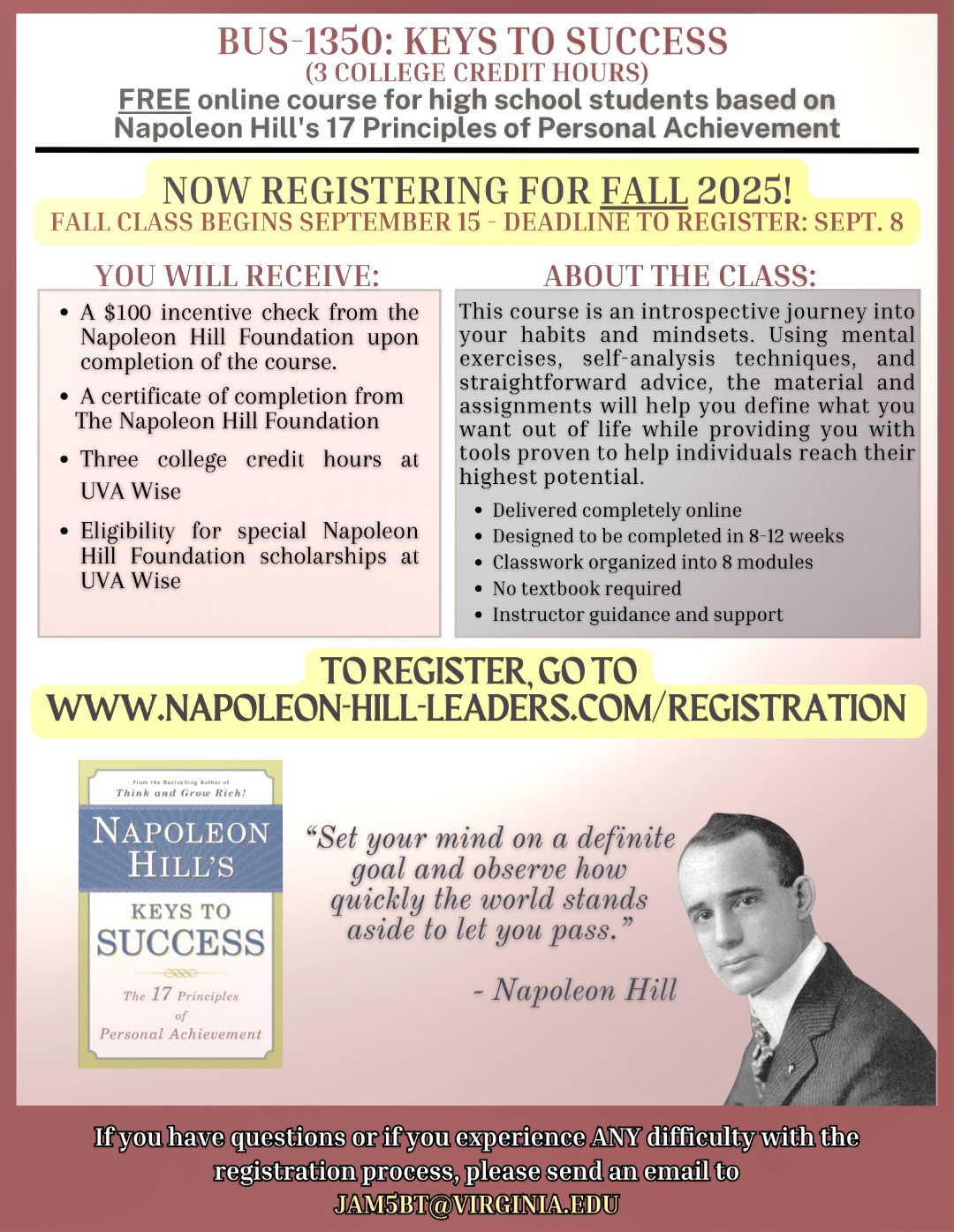Today’s education system, shaped by decades of standardization and testing mandates, often overlooks the unique needs of individual learners — especially those in historically underserved regions like Central Appalachia. Artificial intelligence (AI) promises to change that.
Here, in the mountain town of Wise, the Napoleon Hill Foundation is preparing to launch a bold new chapter in rural education: bringing artificial intelligence — and eventually artificial general intelligence — as part of its “Keys to Success” high school curriculum. The goal is clear and urgent: to ensure that the youth of the Central Appalachian Plateau does not miss the next significant technological transformation, just as many were left behind by the last lagging bandwidth.
“In the 20th century, modernization came to coal country — but not always with opportunity,” says Don M. Green, executive director of the Foundation. “It came with machines that displaced workers, stripped dignity, and changed the way people lived. This time, we have a chance to shape that change for good — to make sure our young people lead, not lose.”
Learning from the past to build the future
The story of coal’s rise and decline in Central Appalachia is one of both power and pain. Mechanization increased efficiency but often eliminated jobs. Outside ownership siphoned wealth away from the communities that produced it. And by the time the 1990s rolled in with the Internet boom, many coalfield towns had already been left behind.
Now, artificial intelligence is poised to change the world even more profoundly than electricity, automation, or the web. From art to zoology, finance to law, transportation to health care nearly every career will be touched — and in many cases, reshaped — by AI systems capable of designing, optimizing and communicating at scales never seen before. This presents a unique opportunity for the youth of Appalachia, empowering them with the skills and knowledge to shape their own future and foster economic growth in their communities.
Those who know how to interact with these systems — who can speak their language, guide their outputs and collaborate with them ethically — will have tremendous advantages in the workforce and in civic life. Those who don’t risk repeating the cycle: sidelined, underemployed and disconnected from the tools that will define the next economy, referred to as the 4th Industrial Revolution.
“This is a transformative moment in time,” says Green. “We’ve seen what happens when our region is the last to benefit from a major transformation. We’re saying: seize disruptive change.”
Merging Hill’s legacy with tomorrow’s tools

The Napoleon Hill Foundation is no stranger to forward-thinking. Hill, born in nearby Pound in 1883, spent his life studying the traits of high achievers. His landmark book, Think and Grow Rich, emphasized clarity of purpose, self-discipline and the power of thought — principles that still resonate today, especially in regions trying to rebuild their identity and opportunities.
The Foundation’s Keys to Success program has introduced those values to hundreds of high schools across Southwest Virginia, offering a curriculum centered on character development, goal-setting and entrepreneurship. Now, the Foundation aims to upgrade the program for the AI age, blending timeless personal principles with technical fluency.
“We’re not abandoning Hill’s message,” Green says. “We’re amplifying it. What he called ‘definiteness of purpose’ is exactly what’s needed to work well with artificial intelligence. The tools are new, but the mindsets remain essential.”
The initiative would introduce AI literacy into the Hill curriculum, covering how to prompt generative AI like Grok, ChatGPT, how to critique and validate outputs and how to utilize it for writing, research, planning, gaining meaningful employment or even launching small businesses. It would encourage students to ask better questions, engage in ethical reasoning and imagine their place in an AI-shaped world — not as passive users, but as empowered creators.
Pilots, partners, and the path forward

To realize this vision, the Foundation is seeking philanthropic partners willing to help seed a pilot rollout in several rural school systems peer to peer engaging in a career motivated direction. The proposed plan calls partner participation over the next three years — funding that would support:
- Student training on AI tools and methods
- Development of AI-integrated lesson plans aligned with Hill’s philosophy
- Creation of “AI Learning Labs” in cooperation with the University of Virginia’s College at Wise and school districts
- Student project focused on entrepreneurship and health
“We believe this model could become a national blueprint for how rural communities prepare their youth to thrive in the AI economy,” Green said.
Several organizations are already beginning to explore similar efforts. Booz Allen Hamilton, for instance, is investing in AI education through its support of the AI Education Project. This nonprofit initiative helps students build the foundational understanding they need to navigate and shape AI systems. As detailed on the AI Education Project’s blog, they’re working, along with Quill, to ensure that the next generation is not merely digitally literate, but AI-literate — especially those from underserved regions.
Green believes Appalachia must be part of that mission — not as an afterthought, but as a leader in the ethical and inclusive use of AI.
“This region has always had grit. What we need now is access,” he says. “Access to tools, to ideas, and to believe in our own future.”
Rooted innovation: Staying home, going far
Unlike many high-tech education programs, the Foundation’s approach is deeply rooted in its local community. Rather than preparing students to leave their communities behind, it’s designed to help them build futures in place, taking full advantage of remote work, AI-powered entrepreneurship and creative industries that are no longer confined to cities. This commitment to the local community ensures that the program is tailored to the unique needs and opportunities of the Central Appalachian Plateau, providing students with the tools they need to succeed right where they are.
Picture a student in Wise County using AI to develop a music career on YouTube, or another in Russell County who builds a drone-monitoring business for area farmers. AI isn’t just about Silicon Valley; it’s about solving local problems with global tools. These initiatives not only empower the students but also contribute to the local economy, fostering a culture of innovation and entrepreneurship in rural Appalachia.
“This is not about turning every student into a programmer,” Green emphasizes. “It’s about giving them the confidence and the capacity to use what’s coming — whether they want to be teachers, caregivers, business owners, or artists.”
That means encouraging collaboration, ethical inquiry and creative experimentation — all of which AI can enhance if introduced with care and guidance.
Avoiding the Digital Divide — again
The stakes are high. Suppose rural regions, such as Central Appalachia, fail to engage with AI early. In that case, they risk becoming what the digital divide was in the 1990s: places where opportunities shrink as technology advances elsewhere.
Green, however, sees an opening — especially with the recent rise of easy-to-use AI tools that don’t require coding experience. “Today, a student with curiosity and a smartphone can do what only PhDs could do five years ago,” he notes. “We just have to show them how.”
And show them why: to build livelihoods, express identity and shape a future that doesn’t abandon the mountains — but elevates them.
As this initiative unfolds, the Napoleon Hill Foundation is staking a bold claim: that the next generation of rural youth can lead the AI economy — not just survive it. By merging timeless principles with today’s most powerful tools, the Foundation is crafting a path forward that honors the past, engages the present and empowers the future.
Jack Kennedy, MS, MA, JD, a Napoleon Hill Scholar, is a native of the Central Appalachian Plateau of Virginia, and now a docent with the US Space Force Public Affairs at Cape Canaveral Station, Florida. Contact him at Jack@JackKennedy.net



